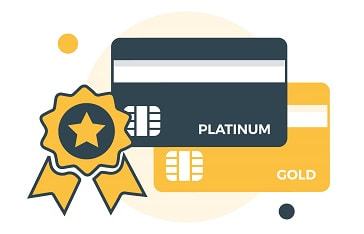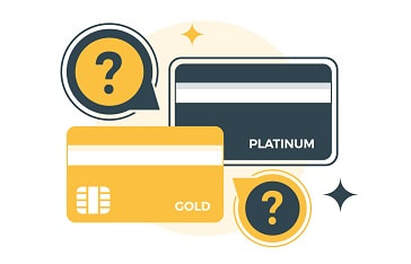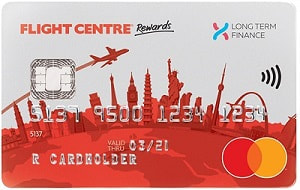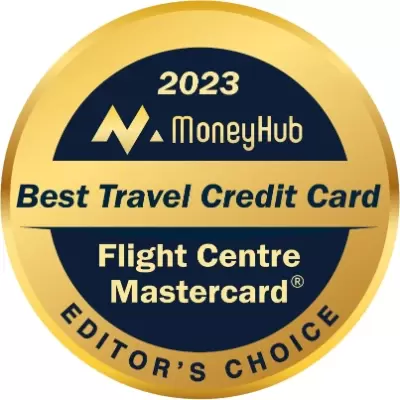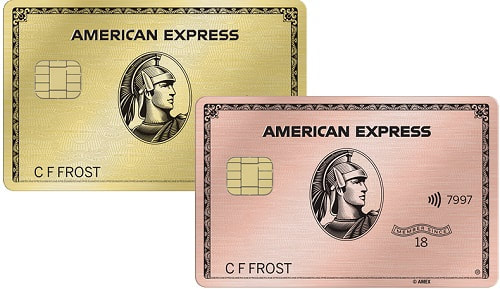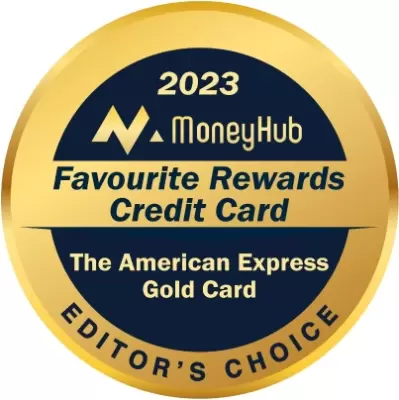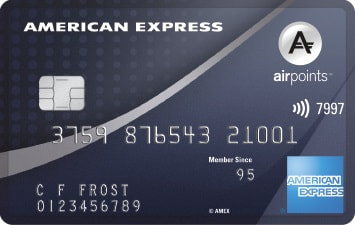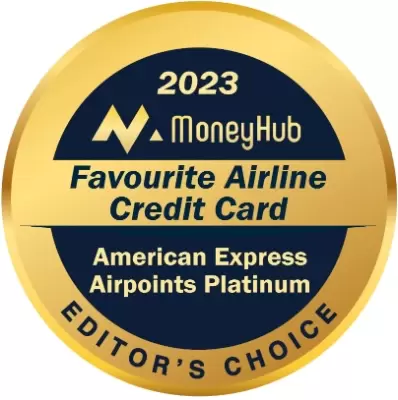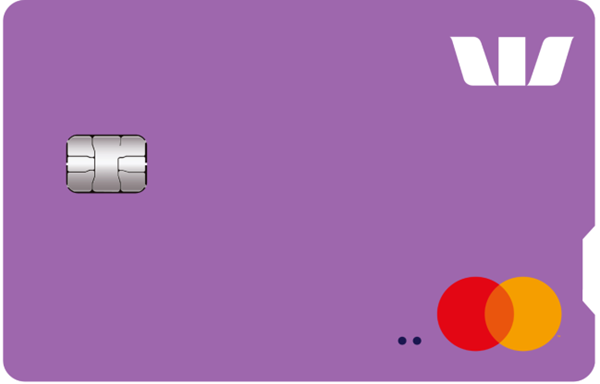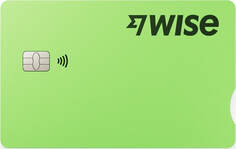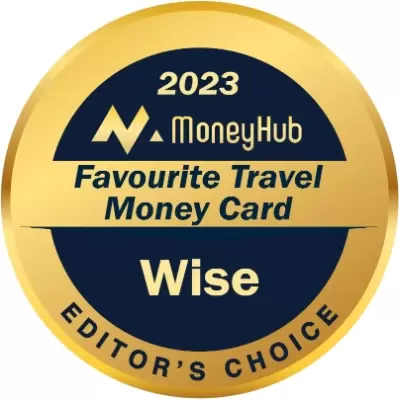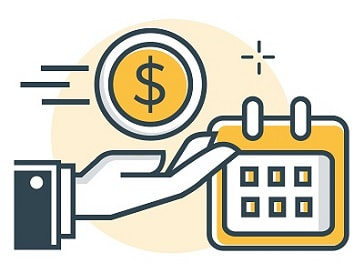The Best Travel Credit Cards
Avoid fee-heavy credit cards - we shortlist cards that offer zero or low foreign exchange fees, exclusive travel insurance coverage, lucrative rewards and fraud protection to make your travel money go further. We also outline alternatives, must-know considerations and frequently asked questions.
Updated 20 July 2024
Summary:
Our guide covers:
Know This First: If you're looking for credit card that will earn points or miles with a specific airline, our dedicated guides have you covered:
Summary:
- Travel credit cards are designed to be used when you're overseas and usually have specific benefits such as low foreign exchange fees, travel insurance coverage and/or travel perks. Travel credit cards are an alternative to everyday credit cards, travel money cards and using your debit or EFTPOS card to withdraw cash from overseas ATMs.
- The right travel credit card can mean you avoid annoying FX fees or save hundreds or thousands of dollars by activating comprehensive travel insurance. And best of all, the leading Travel Credit Cards are useful for everyday spending in New Zealand and earn meaningful rewards.
- New Zealanders have, for the most part, historically been ripped off on fees and FX margins when travelling overseas with banks taking a profitable cut, transaction after transaction.
- However, things are changing - we're committed to bringing transparency to cards and their fees, and it is pleasing to see some innovation with value-focused travel credit cards coming to market.
- This guide explains what you need to know to make a decision about whether a travel credit card is right for you, and the best options available for a range of needs. We also outline the pros and cons, alternatives and must-know facts and considerations.
- Update: For the American Express Airpoints Platinum card, the current $59 spend = 1 Airpoints Dollar rate is valid until 2nd October 2024. From 3rd October 2024, the rate will change to $70 spend = 1 Airpoints Dollar. For the purposes of this guide, we have used the 1:70 rate.
Our guide covers:
- How do Travel Credit Cards Work?
- What are the Benefits of Getting a Travel Credit Card for Travelling Overseas?
- Key Considerations When Comparing Travel Credit Cards
- The Best Travel Credit Cards
- What are the Alternatives to a Travel Credit Card?
- Cash vs Cards in Countries Popular with New Zealand Visitors
- Frequently Asked Questions
Know This First: If you're looking for credit card that will earn points or miles with a specific airline, our dedicated guides have you covered:
MoneyHub Founder and Head of Research Christopher Walsh shares his views about Travel Credit Cards:
|
"Travel credit cards are not usually promoted as travel-focused, but their fees and benefits make them appealing to New Zealanders heading overseas and using them to pay the costs of the trip. However, it's not typically easy to identify the best cards on offer - we have published this guide to change that.
It's frustrating to see some banks charge 2% (and more) as an FX fee (for doing nothing other than charging you that fee, given Visa or Mastercard processes the transaction on the banks' behalf) while giving you less than 1% back in rewards (or nothing at all if you're using a debit card or have a reward-less credit card). However, my view is simple - the best travel credit card will either minimise FX fees (with 0% being the best) while maximising rewards (such as points or some form of cashback) while keeping the annual fee competitive. We also like credit cards which go beyond standard offerings and include travel insurance and other travel-specific benefits. You don't need to travel regularly to benefit from a travel credit card - many cards have valuable benefits for everyday New Zealand spend. If you spend $2,000+ on a credit card every month, there's a lot you can take advantage of with the right credit card. We've published this guide to highlight the best travel credit cards and bring transparency to every New Zealander looking for the best travel credit cards. One thing - if you risk being unable to make repayments in full every month, the interest you'll be charged (over 20% p.a.) will wash away any benefits. It is no fun to return from holiday with a big ewards values. For this reason, I strongly suggest considering to avoid applying for a credit card altogether". |
Christopher Walsh
MoneyHub Founder and Head of Research |
How do Travel Credit Cards Work?
- Travel credit cards are, in nature, no different to regular credit cards – the difference is the FX fee and travel insurance and perks they offer. When you make a purchase overseas, the payment will be converted into NZD and FX fees (if any) will be applied.
- Important: It's essential to repay the balance in full every month. If you don't, the interest charged will outweigh any savings in FX fees. For most Travel (and general) credit cards, interest rates are running at over 20% p.a., turning overseas spending into expensive debt if you miss a payment.
Can I withdraw cash with a credit card?
- Yes, but unless your credit card is topped up to have a positive balance (e.g. you've transferred money from your bank account, so the credit card 'owes' you money), you'll otherwise pay an ATM withdrawal fee and interest from the day you withdraw.
- For example, if you withdraw $1,000 on a credit card that charges 24% p.a. and repay the balance in one month, you'll pay $20 in interest costs and an ATM fee (usually around $5). However, if it takes you six months to repay the $1,000, you'll have spent $100+ on interest costs. You'll also pay whatever FX translation fees the card (anything from 0% to 3%).
Because of these costs, it's likely cheaper to use a travel money card or debit card for overseas cash withdrawals unless you pay off the balance on your Travel credit card in full the same day you make the ATM withdrawal.
How much does it cost to use a regular credit card abroad?
- This depends on the card – our guide lists the FX fees for banks and credit card types.
What are the Benefits of Getting a Travel Credit Card for Travelling Overseas?
Generally, Travel credit cards offer two distinct benefits – zero FX fees or comprehensive travel insurance and travel benefits such as lounge access. No credit cards offer zero FX fees and insurance, although we continue to challenge banks to be more innovative and launch such a card.
Important: Understand FX translation and conversion fees
Know This: If you withdraw cash with a debit card, you'll likely pay an ATM fee and the FX conversion fee on top, which may be higher than the credit card's percentage. Our guide on debit and credit card FX fees explains this further. This means many cardholders are better off using a credit card for purchases (assuming the balance is repaid in full and no interest is charged).
Credit card protection
Important: Understand FX translation and conversion fees
- Going overseas is expensive enough without being stung 2% or 3% every time your bank converts NZD to your local currency to pay for a purchase.
- A credit card with a 2% FX translation fee will, per their fees, take a 2% cut of everything you spend while you're overseas.
- For example, if a family week trip to the Gold Coast costs $5,000 (hotels, food, theme parks and shopping), 2% of $5,000 is $100. It doesn't sound significant, but you're likely already paying an annual fee to have the card; zero-fee Travel credit cards avoid FX fees altogether, so 1/50th or 1/40th of your holiday budget doesn't enrich a credit card company.
Know This: If you withdraw cash with a debit card, you'll likely pay an ATM fee and the FX conversion fee on top, which may be higher than the credit card's percentage. Our guide on debit and credit card FX fees explains this further. This means many cardholders are better off using a credit card for purchases (assuming the balance is repaid in full and no interest is charged).
Credit card protection
- Credit cards protect you overseas if your card details are stolen, cloned or misused – this July 2023 NZHerald article explains why this is important. While credit card fraud is relatively rare in New Zealand, it can happen when you're overseas, and when it does, you want a speedy resolution. Debit cards typically have less protection, as do traditional travel money cards.
Beyond Credit Cards - Our Top-Rated Debit Card for Travel and Non-NZD Payments - The Wise Debit Card
|
Key Considerations When Comparing Travel Credit Cards
Selecting the most suitable travel credit card requires a careful comparison of various offerings; our list of important factors to consider helps you make an informed choice:
Important: Before signing up for a new travel credit card, ensure it aligns with your financial situation and travel habits. A travel credit card can be a valuable tool for overseas spending, but if you fail to pay off your balance promptly each month, it could result in high-interest costs and mean you carry around long-term debt. With the cost of living what it is, eliminating interest costs is the best way to navigate ever-increasing prices. For this reason alone, it's crucial to consider your ability to manage repayments effectively.
- Interest Rate: You'll be charged if you don't pay off your outstanding balance in full each month. It's usually expressed as a percentage per annum. Ideally, you'll repay the balance owed after each month and never have to pay interest. However, sometimes that's not possible, so a competitive interest rate (e.g. less than 25% p.a.) is arguably very high but 'within range'. Because of the high interest costs, we strongly suggest not applying for any credit card if you don't think you'll be able to make payments in full.
- Fee-free Overseas Transactions: One of the main reasons for obtaining a travel credit card is to avoid fees on overseas spending. Some cards offer 0% FX fees; check if your prospective card offers this feature, as otherwise you'll pay around 1.50% to 3.50%, depending on the card issuer.
- Cash Withdrawal Charges: You'll unlikely use this feature unless you're in an emergency and need physical cash, but it's good to know how much a cash withdrawal costs.
- Rewards and Benefits: Does the travel credit card offer rewards or perks, such as cashback on spending or travel insurance? What about lounge access? These benefits can make a card more attractive, especially if you travel frequently and are comfortable with the annual fee.
- Eligibility: Ensure you meet the card provider's eligibility requirements before applying. With CFA legislation, credit cards are lent, and there are thorough checks around affordability before any credit card is approved.
Important: Before signing up for a new travel credit card, ensure it aligns with your financial situation and travel habits. A travel credit card can be a valuable tool for overseas spending, but if you fail to pay off your balance promptly each month, it could result in high-interest costs and mean you carry around long-term debt. With the cost of living what it is, eliminating interest costs is the best way to navigate ever-increasing prices. For this reason alone, it's crucial to consider your ability to manage repayments effectively.
The Best Travel Credit Cards
The shortlist below features award-winning credit cards. MoneyHub's editorial policy limits the amount of awards and recognition we can give - if we do award financial product, we argue it's the best of the best and stands in a class of its own.
Leading Travel Credit Cards
Our shortlist of cards below lead the way with travel-specific value, low fees and helpful benefits:
Leading Debit Card and Travel Money Card Options
It pays to have a backup to any credit card when heading overseas; this card offer the lowest fees:
Leading Travel Credit Cards
Our shortlist of cards below lead the way with travel-specific value, low fees and helpful benefits:
- Flight Centre Mastercard (0% FX fee on all non-NZD purchases)
- American Express Gold Card (travel insurance included, 2.50% FX fee on all non-NZD purchases)
- American Express Airpoints Platinum (travel insurance included, 2.50% FX fee on all non-NZD purchases)
- Westpac Fee Free Mastercard (0% FX fee on all non-NZD purchases)
Leading Debit Card and Travel Money Card Options
It pays to have a backup to any credit card when heading overseas; this card offer the lowest fees:
- Wise Travel Money Card (around 0.50% FX fee on all non-NZD purchases)
Favourite Travel Credit Card - Flight Centre MastercardOur view:
MoneyHub's editor Christopher Walsh says: "A credit card that offers free FX fees and a 3% rebate on Flight Centre bookings is a win-win. New Zealanders can spend $10,000+ on a trip of a lifetime before leaving NZ and get a $300 credit for future travel at a time when bank credit card rewards have been scaled down, makes this our favourite travel card. Flight Centre launched this card in 2018 (per our research published in interest.co.nz) and has only improved its offerings. There's a lot to like about this card". |
Favourite Rewards Credit Card - The American Express Gold Rewards CardOur view:
MoneyHub's editor Christopher Walsh says: "We're big fans of the American Express Gold Rewards Card for many reasons. No other credit card offers so much flexibility and generosity, and as more major retailers take American Express, cardholders will compound their rewards and cashback without friction. The free travel insurance and annual dining credit are added perks to make this the ultimate rewards credit card for anyone who likes to dine out and travel locally or overseas". |
Favourite Airline Credit Card - American Express Airpoints PlatinumOur view:
MoneyHub's editor Christopher Walsh says: "Banks have scaled down what they offer regarding airline credit cards; we consider this the best Air New Zealand card on offer, bar none, for any of the 500,000+ New Zealanders with a 'platinum' card who are thinking about changing to something that rewards them significantly better". |
Leading Debit Card for Travel - Westpac Fee Free MastercardOur view:
Westpac's Fee-Free Mastercard stands out as a budget-friendly choice for those seeking a low-cost credit solution. Unlike many credit cards that add hefty charges, this card doesn't charge an annual fee, nor does it have foreign currency fees. When you're overseas or making purchases in different currencies online, you won't be burdened by the usual 2-3% foreign transaction fees that most cards impose. Westpac also offers a low interest rate for purchases at 12.90% p.a., coupled with up to 55 days of interest-free purchases when you clear your balance on time. This makes it a popular choice for both everyday use and international travel. MoneyHub's editor Christopher Walsh says: "The Westpac Fee-Free Mastercard is a game-changer for those who are tired of excessive fees and high interest rates and want to travel with a credit card that is issued by a bank. It's particularly advantageous for travellers and online shoppers, with no foreign currency fees and a low interest rate. This card is worth considering for New Zealanders seeking a cost-effective and secure credit card option." |
Favourite Travel Money Card - Wise Debit CardOur view:
MoneyHub's editor Christopher Walsh says: "We do not know of a better debit card that offers cardholders so much for so little. New Zealanders are routinely charged too much in fees when paying in foreign currency, whether it be online or while travelling overseas. Wise delivers a solution that cuts the fees, gives you an app to track/block/review your card use, and has no ATM fees (within limits). It's a perfect card for anyone in New Zealand or looking for the ultimate travel money card without the fees, risk and inconvenience". |
What are the Alternatives to a Travel Credit Card?
The most popular options are cash, travel money cards, debit cards and credit cards. Each method has its pros and cons:
- Cash: Although it might appear the most straightforward approach, not everyone likes carrying substantial cash during their journey. The risk of losing it or becoming a target for theft and worrying about having a hotel with an in-room safe means only carrying emergency cash is often the best approach.
- Debit cards: Using a New Zealand-issued debit card overseas usually involves foreign currency conversion fees for cash withdrawal at overseas ATMs. However, the benefit is that you're spending your saved money and not getting into debt.
- Travel Money Cards: These cards allow you to secure a competitive exchange rate in advance and function similarly to debit cards. However, except for the Wise card, there are high fees and commissions associated with the legacy travel money cards, as our comparison outlines.
- Regular credit cards: When you use a conventional credit card abroad, it can often entail additional charges (such as higher foreign exchange fees) and lack travel benefits, something you could bypass with a specialised travel credit card.
- Our view: While a travel credit card can be a sensible choice for managing your finances when travelling overseas, evaluating each option in light of your individual needs and circumstances is essential. Our shortlist of the best options published in this guide aims to give you some ideas about the best available cards and their unique benefits.
Important: Travel Money Cards vs Travel Credit Cards: How Do They Compare?
- Travel money cards are like debit cards – you load the card/account with money before or during your time overseas. You can then lock in an FX rate by moving money to currency wallets (e.g. EUR, GBP and AUD) or leave it in NZD, whereby transactions will be converted at the exchange rate when you purchase.
- Travel money cards work like debit cards and are designed to be convenient and cost-effective. However, our extensive research and comparison confirmed only Wise was in a class of its own regarding market FX rates and low fees.
- Travel credit cards see you borrow against your limit, meaning you'll need to repay it in full when it falls due to avoid paying interest.
Cash vs Cards in Countries Popular with New Zealand Visitors
As in New Zealand, more countries worldwide are embracing cashless transactions, further advanced after the pandemic. In many popular travel destinations for Kiwis, digital and card payments are now frequently used, sometimes even more than cash. Here's a quick overview of cashless payment acceptance in regions that New Zealanders often visit:
Asia
Pacific Islands
Europe
Americas
Middle East and South Asia
North Africa
Sub-Saharan Africa
Our view: While cashless transactions are becoming the norm, having a mix of payment options, including cash, can ensure you're covered in all situations.
Asia
- In countries like Singapore, Malaysia, Thailand, Vietnam, Cambodia, China, Hong Kong, Taiwan, Japan, and Korea, cashless payments are becoming increasingly popular, particularly in urban areas.
- Smartphone apps and card payments are widely accepted, but in some rural or less-developed areas, it's worth noting that cash might still be necessary.
- In China, for instance, mobile payments via apps like WeChat Pay and Alipay are common, although credit cards may not be universally accepted in more remote regions.
- In regions such as Bali, Phuket, Ko Samui and other islands, cash is often the primary mode of transaction, especially outside major tourist areas. However, credit and debit cards are commonly accepted in larger establishments.
- More information: Our guides to travel money in Japan and Bali, popular destinations for New Zealanders, explain your options.
Pacific Islands
- In places like Fiji, Rarotonga, Samoa, and Tahiti, credit and debit card payments are generally accepted, especially in hotels, resorts, and larger retailers. However, it's always a good idea to have some local currency on hand for smaller vendors or more remote locations where card payment facilities might be limited.
- More information: Our guides to travel money in Fiji and Rarotonga, popular destinations for New Zealanders, explain your options.
Europe
- Countries like Spain, the UK, Greece, Germany, France, and Italy have widely adopted cashless payments, with cards and smartphone apps being the standard payment method in many places.
- Similarly, Scandinavian countries like Finland and Sweden are some of the most cashless societies in the world.
- More information: Our guides to travel money in Europe and the UK explain your options.
Americas
- In the USA, Canada, Mexico, Argentina, and Brazil, card payments are very common. However, carrying some cash can be helpful for tips or smaller vendors.
- More information: Our guides to travel money in the USA explains your options.
Middle East and South Asia
- In countries like the UAE (Dubai), India, and Sri Lanka, card payments are common in urban and tourist-heavy areas. However, carrying cash for smaller transactions or in rural regions is useful.
North Africa
- In Egypt and Morocco, card payments are typically accepted in major cities, tourist sites, and larger establishments such as hotels and upscale restaurants. However, cash remains an important mode of payment, particularly in rural areas, smaller towns, or when dealing with smaller businesses and street vendors.
Sub-Saharan Africa
- In South Africa, card payments are widely accepted, particularly Visa and Mastercard. Larger establishments like hotels, restaurants, and shopping centres will readily accept card payments. However, carrying some cash for smaller vendors or when visiting less urban areas is advisable.
- In other popular destinations for Kiwis, such as Kenya, Tanzania, or Botswana, the acceptance of card payments can vary. Major hotels, restaurants, and tour operators usually accept card payments, but it's recommended to have a supply of cash on hand, particularly for tips, local markets, and more remote regions.
Our view: While cashless transactions are becoming the norm, having a mix of payment options, including cash, can ensure you're covered in all situations.
Beyond Credit Cards - Our Top-Rated Debit Card for Travel and Non-NZD Payments - The Wise Debit Card
|
Frequently Asked Questions
We publish common queries with helpful answers below - if you would like to know something we haven't covered below, please contact our research team.
What exchange rate do I get with a Travel credit card?
The FX rate will be the credit card issuer's rate when you complete the transaction. Our research into Visa vs Mastercard FX rates concluded that Mastercard offers better FX rates for credit and debit card transactions. The difference was around 1%, which makes a small but not insignificant difference to how much you spend on holiday.
Exchange rates are constantly changing; if you want to lock in a particularly favourable exchange rate and minimise fees, our guide to travel money cards has you covered.
Exchange rates are constantly changing; if you want to lock in a particularly favourable exchange rate and minimise fees, our guide to travel money cards has you covered.
Do I need to tell my bank or credit card issuer I'm overseas?
Yes – call their customer support or message their team on your bank's app before you travel to avoid your card being blocked. While bank technology has come a long way in recent years, you'll minimise the situation where your card gets blocked.
Should I use a travel credit card or withdraw cash when I travel overseas?
Withdrawing cash is often expensive and inconvenient, although having a safety amount (e.g. £200, US$250, AU$300, EUR250) is often useful should you get stuck. If you're unlikely to be able to pay off the entire balance of a credit card when it falls due, we suggest considering a travel money card which you can prepay to minimise growing an unaffordable debt while you're on holiday. As a point of reference, the Wise card offers up to NZ$350 fee-free ATM withdrawals (in whatever currencies you need) per calendar month, something unrivalled by any other travel money card and credit card etc.
Should I pay in local currency or accept the NZD rate on an ATM or merchant machine when I am overseas?
When you see 'Would you like to pay in NZD or (local currency)' pop up, paying in NZD will almost always have an outrageous margin attached (for example, 5%). This is a con and best avoided, but it's understandable if you get caught out once or twice, given it's confusing. The cheapest way to pay is always by transacting in the local currency – that way, your credit card, debit card or travel money card will convert using its standard fees. These will be lower than any markup charged by an ATM or payment machine.
Can my credit card get blocked when I'm spending money overseas?
Yes – we suggest telling your bank that you're going overseas. However, even if you have, it can still be blocked. Make sure your banking app is up to date, take note of the credit card issuer's phone number and always have a backup card just in case.
Are my purchases protected when I use a credit card?
Yes – if you have a dispute, you can raise a claim with the bank or credit card issuer should such a situation arise.
How can I ensure credit card security when overseas?
You must keep your credit card safe and not share the PIN with anyone. Any time you key in your pin, cover it with your hand.
What are the options for someone looking to earn frequent flyer perks but not overpay on a card fee?
We argue that American Express is the only credit card issuer interested in providing value-for-money when it comes to frequent flyer credit cards. Specifically:
- For Air New Zealand, AMEX's popular Airpoints Platinum card earns close to twice the number of Airpoints Dollars for every $100 spent compared to any bank card. This makes it an unrivalled card, and even more so when you factor in all the travel benefits it offers.
- When it comes to other airlines, again, only AMEX offers a frequent flyer credit card that syncs with the programs of Qantas, Emirates, Qatar Airways, Singapore Airlines, Cathay Pacific and Malaysian Airlines. There are two cards - the Gold Rewards Card and, for serious spenders, the Platinum Charge Card. However, we argue that most New Zealanders will be more likely to consider the gold card (which we have extensively reviewed).

